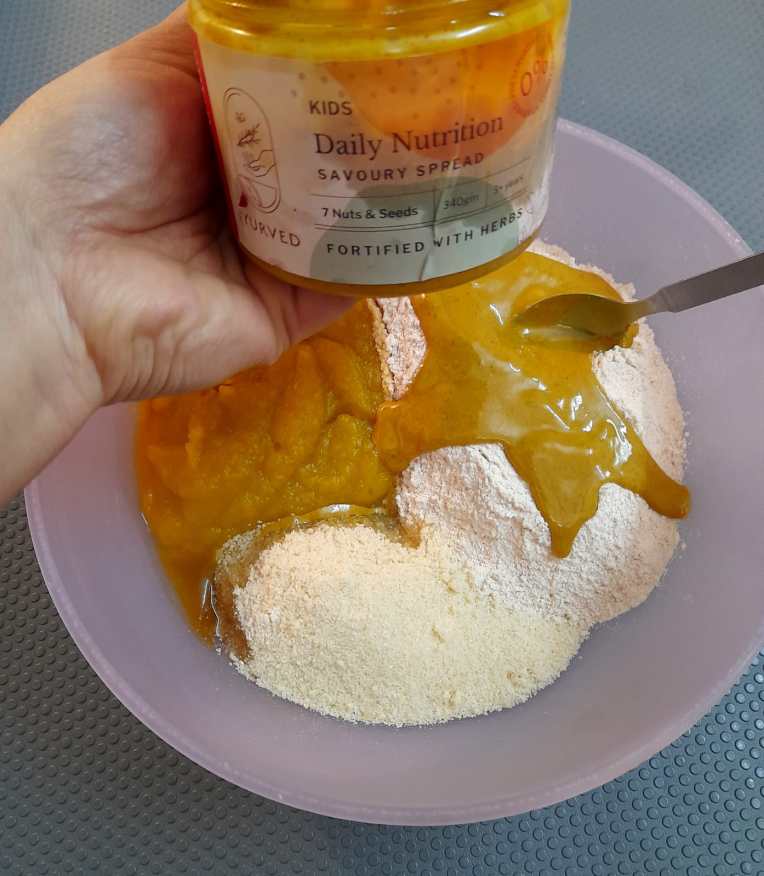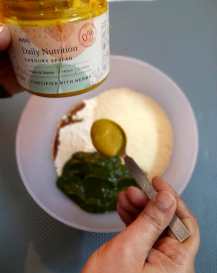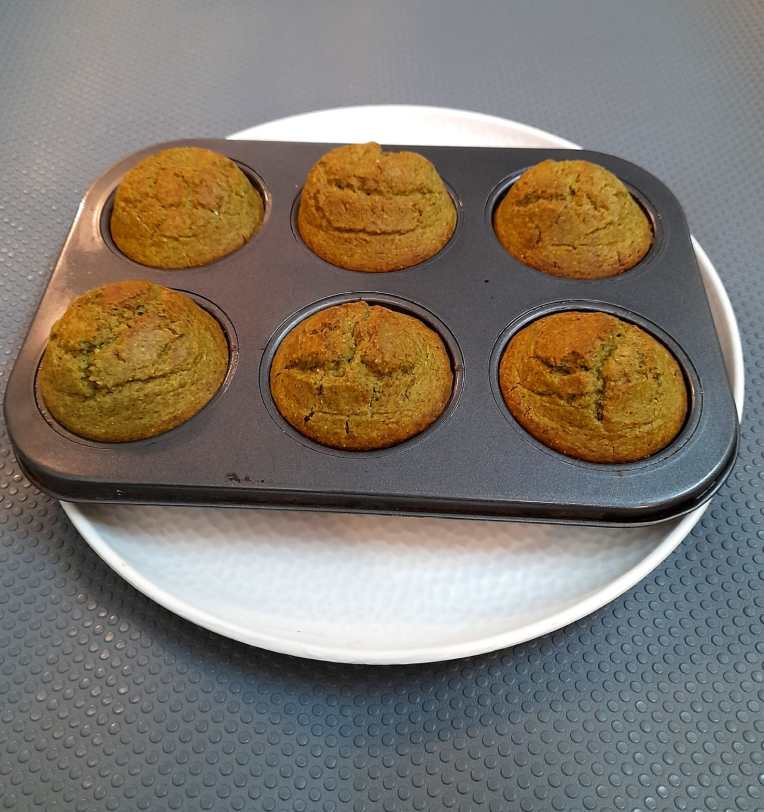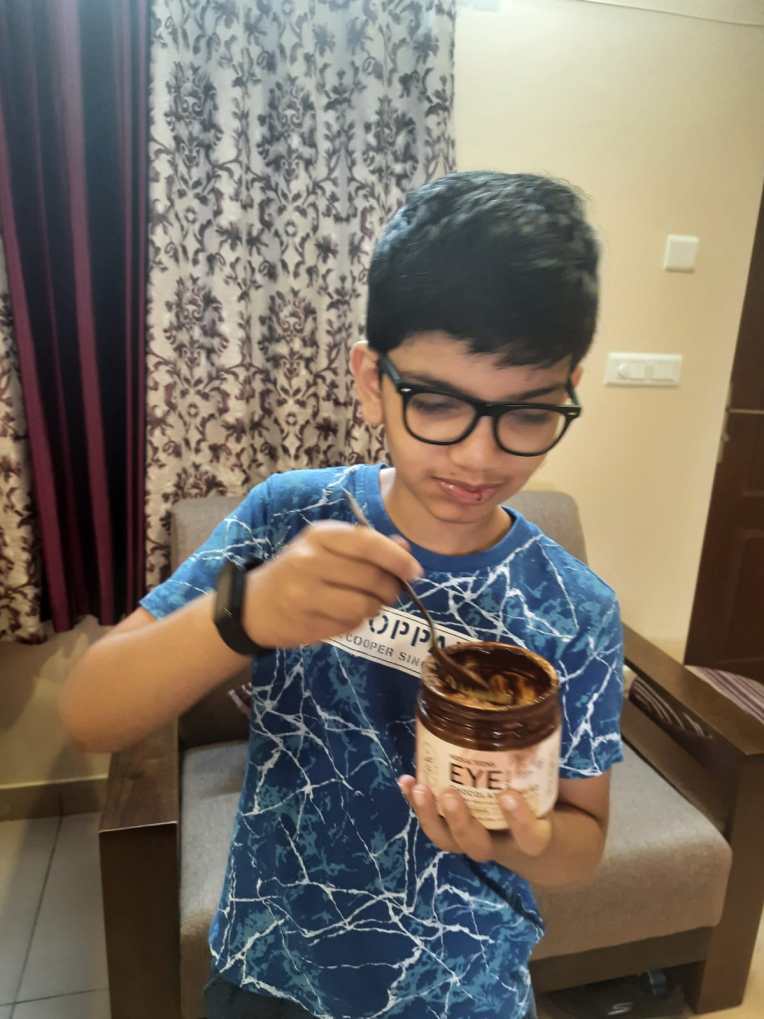Does your child struggle to gaze and make eye contact with you? Does it also gets difficult for him/her to express using longer sentences? Are you also worried about their unclear voice? Did they used to speak wonderfully earlier and now somehow have unknowingly stopped speaking? It’s quite certain for your worry to creep in. But here we have something very useful for you on the platter! Parents!! Need not worry. Let’s dive deep into the secret ingredients of the Brain Booster.
Also check, Focus and attention building games for the brain.
What do the parents have to say?
Here’s how it works!!!
1. 2-3 years
IMAGE FEEDBACKS

Also check, Types of Autism spectrum disorders.
VIDEO FEEDBACK
https://www.youtube.com/watch?v=VlISdpi3rKE

What does Rama have to say?
I started Brain Booster along with therapies, after using it for a month noticed improvements such as:
- Not repeating same words
- Command following
- Understanding and focus
- Calm and obedient
- Learning new words
- Autism Assessment score decreased from 10 to 4.
Also check, Autism and eye contact.
2. 4-5 years
IMAGE FEEDBACKS

Also check, Speech regression in kids.
VIDEO FEEDBACK
https://www.youtube.com/watch?v=FVKfGXdNyQA&t=160s

What benefits did Barkha notice in her 5 years old?
I used Brain Booster for 4 months and could notice lot of improvements like :
- Voice became clear
- Able to spell difficult words
- Started using lot of new words and sentences
- Expressing in clear and commanding tone
Also check, Does high screen time cause speech delay in kids?
3. 6-8 years
IMAGE FEEDBACK

Also check, Benefits of Brahmi in Brain development.
VIDEO FEEDBACK
https://www.youtube.com/watch?v=BfG9U9RaKqM&t=22s

What benefits did Neeta notice in 1-2 months?
- Overcame speech delay
- Can frame and speak lengthy sentences
- Became more interactive and social
- Confidence has increased at expressing herself
Also check, Oral motor exercises for kids.
4. 9-12 years
IMAGE FEEDBACK

Also check, Omega 3 foods for Brain development.
VIDEO FEEDBACK
https://www.youtube.com/watch?v=df7B-2hkNTI&t=9s

After using for 3-4 months , Monalisa could notice positive changes like :
- Focus and also concentration is increased
- She began speaking broken sentences
- Understanding has improved
Also check, Techniques to reduce stammering.
So Come on! Lets hold more focus upon it’s working.
How does it work?
Indeed it’s a pack of Brain health with the perfect combination of all potent ingredients!
It is a healthy brain booster food made up of ingredients such as Nuts, Seeds, Ayurvedic herbs like Brahmi, Shankhpushpi, Ashwagandha which can strengthen the left side of the brain which has a language development section. The brain booster food also helps in naturally providing omega-3, healthy fats and protein to the child. You will first notice the benefits of concentration. Once higher concentration is formed, there will be an improvement in eye contact and also attempt-to-speech will begin within 2-3 months of regular use.
Brain booster is available as two variants. BRAIN BOOSTER chocolate spread and BRAIN BOOSTER savoury spread (Non-sweet). These provide daily nutrition for kids & teens to help support brain development (Memory, Focus & Mood), especially for kids who typically:
- Are unable to focus and also feel distracted
- Have to develop brain’s full potential for learning
- Are restless and also unusually active
- Feel emotionally low and dull
- Have Speech Delay, Autism, Dyslexia, Stammering, Lack of eye contact
Hold on! Let’s take a look at the ones who have been benefited.
Also check, Speech sound disorders in kids.
Benefits of Ingredients
Brain booster chocolate spread by Iyurved is a preservative-free health food product made entirely of natural ingredients. It includes:
1. Nuts : Nuts are treasure house of vitamins, minerals, antioxidants, healthy fats, protein, and also fibre, all of which help children grow, develop, and learn. All nuts, including almonds, walnuts, cashews, peanuts, and hazelnuts, are high in vitamin E and also aid in memory enhancement. They are also antioxidants that protect cells from harm. Walnuts are high in omega-3 fatty acids and are also therefore beneficial for brain function, memory, and reasoning ability. This fatty acid also promotes cognitive function and aids with communication.
Also check, Best Nuts for protein.
2. Seeds : Apart from nuts, seeds such as flax, chia, melon, sesame, and pumpkins offer potent antioxidants such as vitamin E, which protect the brain from free radical damage. Sunflower seeds have an effect on overall mood and so also mental processing abilities, hence they are regarded as a brain-boosting snack. Pumpkin seeds contain more magnesium, copper, and zinc than other seeds, which aid in concentration, memory, and attention span. One of the simplest brain-boosting foods for children to consume.
Also check, Health benefits for pumpkin seeds.
3. Ashwagandha : It is the most potent herb for boosting the neurological system. It promotes brain function, understanding, and cognitive performance. Ashwagandha is a kind of adaptogen. It has been shown to also reduce anxiety and stress. Furthermore, it raises acetylcholine levels, which aids in memory, mental focus, and intelligence and also speech. Ashwagandha increases brain function and may also help protect against cognitive deterioration.
Also check, Health benefits of Ashwagandha.
4. Brahmi : Brahmi is a brain superfood thought to sharpen the mind by safeguarding cells and also enhancing chemicals involved in learning and memory. It also acts on the central nervous system, where it increases grasping capacity, eye contact, memory, cognition, and also speech, as well as rectifying emotional, mood, and also personality aberrations in an individual
Also check, Benefits of Brahmi in Brain development.
5. Shankhpushpi : Shankhapushpi is an ancient treatment for improving brain function. Its potent antioxidants and flavonoids boost an individual’s memory ability, focus, concentration, calmness, and also alertness. Shankhapushpi also improves autistic symptoms such as eye contact, memory, reasoning, problem-solving, and other cognitive abilities because it is a brain tonic and stimulant.
Also check, Echolalia in kids.
6. Cocoa : Pure cocoa powder (unsweetened) has brain-boosting components because it contains a high concentration of antioxidant molecules, the most important of which is epicatechin, which has also been shown in studies to enhance cognitive and speech impairment. As a result, cocoa powder is an important brain development feed for the children.
Also check, Speech therapy fun exercises for kids.
7. Omega 3 fatty acids : A lack of omega-3 fatty acid consumption might cause speech development delays in children. It can also have an impact on speech quality. These healthy fats are crucial for brain development and also help to manage speech sound disorders and delay in kids. Docosahexaenoic acid (DHA), a long-chain omega-3 fatty acid, is especially crucial for brain and so also eye development. Furthermore, DHA also has an important function in mental health throughout childhood and so also even into maturity.
Also check, 10 reasons of giving the kids Omega rich foods.
PRODUCTS
It’s no SECRET that following an Ayurvedic lifestyle has so also numerous advantages. This unique collection of Kids Ayurvedic Brain Booster is also an easy solution to feed daily nutrition for Brain development to kids so also without any fuss. Made with Proven Ingredients. No Preservatives or Artificial Colour or Flavour. No Side Effects. Trusted by 20000+ Parents and Practitioners. To know more about kid’s ayurvedic foods – SHOP HERE.

India’s First Tasty Kids Nutrition fortified with Ayurvedic herbs.
For Speech Delay, Autism, Concentration, Focus, Memory & Eye contact, give Kids & Teens Brain Booster Chocolate/ Savoury Spread | 0% preservatives | 0% refined sugar | 0% palm oil | Fortified with SHANKHAPUSHPI, ASHWAGANDHA, BRAHMI | Contains OMEGA 3, PROTEIN | ORDER |
Immunity, Gut health, Digestion, Weight, Brain development, Speech delay, Epilepsy, Eye health, Hormones, Sleep, Hyperactivity, Bones and Overall growth
































